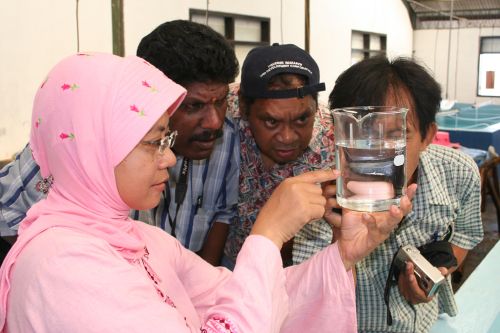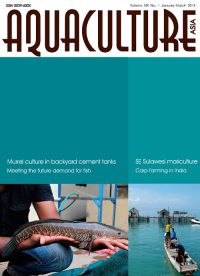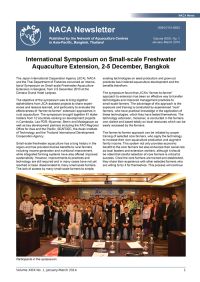
The Education and Training Programme assists capacity building among NACA members through the exchange and sharing of knowledge and skills between members. Activities may take the form of training courses, study visits and personnel exchange. The programme also supports the training components of the other thematic programmes and serves as an outreach arm of NACA. Regular training activities include three to four courses each year on various topics of regional priority in aquaculture development, such as:
- Broodstock management in aquaculture.
- Aquaculture business management.
- Marine finfish seed production.
- Aquaculture governance and planning.
- Management for sustainable aquaculture development.
Key activities
Key activities of the programme include:
- Identifying training needs for aquaculture development in NACA members.
- Identifying and organising relevant expertise and capacities to meet the training needs.
- Developing training modules and materials.
- Facilitating routine education and training activities of NACA.
- Facilitating and coordinating exchange programmes among members and with other regions.
Creative Commons Attribution.

